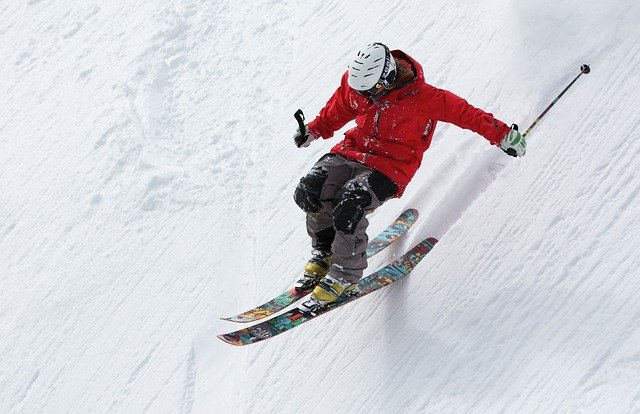Japanese engineers have created a system that allows you to learn Skiing in virtual reality. It records the movements of a professional skier on a simulator and then transfers those movements to a virtual model displayed in a VR helmet. Observing the movements of the model, the training athlete can repeat them and bring his skill closer to the skill of a professional skier.
Learning to ski is associated with two main difficulties. First, this sport is limited to a certain time of year and location, although there are a small number of indoor all-season artificial tracks. Secondly, even in winter on a ski slope training this sport is more difficult than many others, because the instructor, as a rule, can not show their skills to a beginner student right on the slope.
A team of engineers from the Tokyo Institute of Technology, led by Hideki Koike, have created a system that allows students to train at any time and repeat their movements during the descent time right behind the instructor. They took two commercially available ski simulators as a basis. They have a different design, but both allow the skier to actively move to the sides with legs fixed on the mobile or movable platform.
How to VizSki: Visualizing Captured Skier Motion in a VR Ski Training Simulator (@vrcai '19) pic.twitter.com/fsl5OWoXOW
— HCI Research (@HCI_Research) December 1, 2019
On one of the simulators, they installed a motion capture system. It consists of several high-speed infrared cameras that track the position of spherical markers that are pre-pasted to certain parts of the athlete’s body. This allows you to create an animated 3D model of a skier in order to then use it as an instructor, going down a virtual track in front of a student. Engineers created the model by inviting two participants of the World Cup in alpine skiing.
The second simulator is used for training. A student with a VR helmet put on him, in which a virtual track is displayed. The position sensors synchronized with the VR helmet are fixed on the boots, allowing you to visualize the position of the legs and body of the skier in a virtual environment.
The developers created three visualization modes: in one of them, the student simply goes after the skier with a delay of half a second, in the other, the VR environment periodically leaves a “snapshot” of the skier on the track, thus fixing his position at a certain moment, and in the third, on the image of the virtual slopes are superimposed graphs of the angle of inclination of the legs of the instructor, updated in real-time.
A study on 81 volunteers showed that they understood how various visualizations help them improve their skills on the simulator (no testing was done on real slopes). In addition, in their opinion, instructor visualization modes help learn to skate better than a simple free skating mode.
